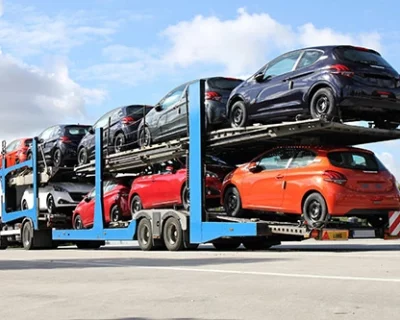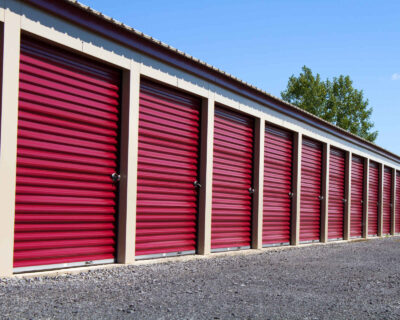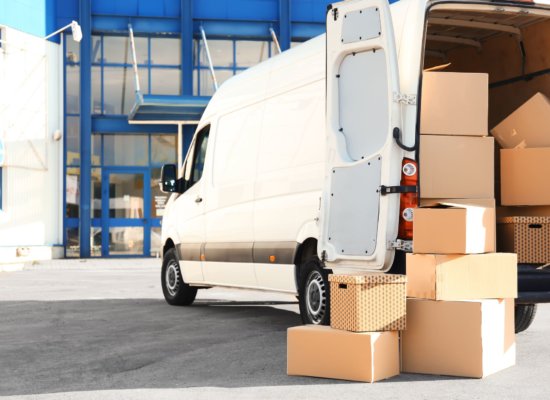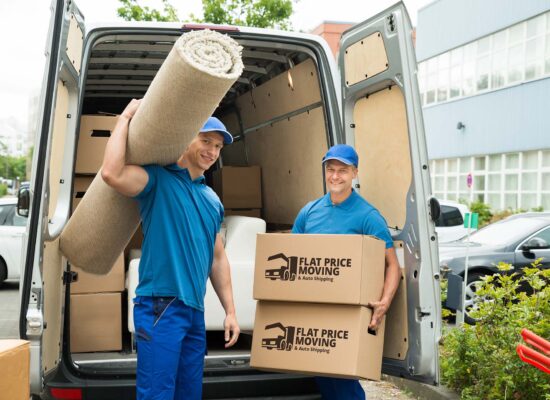How to Pack Kitchen Items for Moving
Why is the kitchen people’s worst nightmare when it comes to packing for a move? The answer is simple: there are so many elements of different shapes and sizes that you can’t simply tackle in a hurry. So, if you’ve ever wondered how to pack kitchen items for moving without risking any broken dishes or other items, with these tips, you will become an expert for packing kitchenware.

How to Pack Kitchen Items for Moving?
To pack kitchen items for moving, start by selecting sturdy boxes and using plenty of bubble wrap, packing paper, and stretch wrap for protection. Group similar items together, like dishes with dishes and utensils with utensils, to keep things organized. Fragile items should be wrapped individually and nestled securely in boxes with ample padding. Label each box with its contents and the room it belongs to. For appliances, ensure they are clean and dry, and remove or secure any loose components.
Choose the Right Wrapping Materials
Moving day preparations include gathering as many packing supplies as possible since an average household has countless things that need to be packed. This means you should obtain:
- Boxes – borrow or buy as many large, medium, and heavy-duty ones,
- Duct tape,
- Foam peanuts,
- Packing paper,
- Cardboard separators or cell kits are useful for securing objects like glasses, stemware, bottles, vases, figurines, etc.,
- Bubble wrap,
- Permanent markers,
- Original packages for appliances if possible.
Explore Packing Solutions and Budget-Friendly Alternatives With Your Mover
When choosing a long-distance moving company with the best services, you’ll be happy to hear that most of them provide you with packing services using all kinds of boxes and packing supplies. In fact, you could even count on them to do most of the wrapping for you or provide you with some useful long-distance relocation tips.
Alternatively, if you’re on a relocation budget, you can find a way to obtain more affordable alternatives. Start by visiting your local grocery store and ask if they have any cartons they don’t need. They might be able to provide you with different materials.

How to Pack Kitchen Items for Moving – General Tips
Whether you have a small kitchen with essential items or a large one with a ton of various elements and pieces, you want to have all of your belongings transported safely. This being said, here are some handy relocation tips regarding the best way to pack for a move.
Secure the Base - Reinforcing Your Boxes for Safe Transit
Before placing things into boxes, start by securing the bottom of each box with more tape layers. This will reinforce the cardboard, so you can be sure nothing gets damaged while on the truck or in storage.
Cushion the Blow - Safeguarding Fragile Items with Effective Padding
As you pack plates and other breakables and fragile items, cover the bottom and the sides of the box with different materials for padding – bubble wrap, foam peanuts, or paper. If you’re planning to use newspapers as a budget option, remember that they could stain your belongings with inkblots of letters and lines.
Wrap Tactics - Using Dishtowels and Paper for Breakable Security
Wrap individual pieces in paper for additional protection. You can use dishtowels for this purpose, too.
Tiny Parts, Big Organization - Storing Small Items Safely
Small parts like bolts, screws, etc., should be placed in food storage containers, as this is the best way to be sure you won’t lose anything.
Fill the Gaps - Preventing Movement and Damage in Transit
Don’t leave any space in a box, fill it with crumpled paper. Leaving room inside a package will allow your belongings to move around while in the truck and potentially get damaged.
Heavyweight Packing - Choosing the Right Box Size for Dense Items
Pack the dishes and other heavy things in small boxes. If you place heavy stuff in larger packages, you run the risk of the cardboard giving in and damaging the contents.
Label With Love - Ensuring Careful Handling and Organization
Label all packets and mark those with breakables as fragile, so that the movers know to handle them with care. You can also write down the room a package belongs to, or any additional info. If it seems more useful, use a color-coding labeling guide.
Protecting Kitchen Appliances
One of the best tips for packing fragile kitchen elements is to use original boxes and packaging. In case you don’t have them anymore, get appropriately sized cartons. Check whether every box is dry and clean before you start to pack. Fragile devices in the kitchen should be wrapped in bubble wrap, while metal or plastic pieces need a double layer of paper. If you’re not sure how to tackle something, don’t hesitate to ask the long-distance movers you hired for some guidelines.
Auto-Transport
If your first concern is having your vehicle transported safely and efficiently, enclose shipping is the way to go.
Read moreStorage Service
Knowing what kind of surprises cross country move may hold, we offer 30 day free storage for belongings at the origin state.
Read moreMoving Insurance
Flat Price Moving and Auto Transport Company offers moving insurance to cover potential damages
Read moreTransporting Large Items Cross Country
First of all, decide whether you will pack and take all of your appliances to your future home. There are several things to consider when moving to a new state before you make up your mind:
- Are they still new and in generally good condition?
- Do you need them on a regular basis?
- Does the kitchen in your new home come equipped with better appliances?
- Will you have enough room for such bulky and heavy stuff on the truck?
If there are belongings you can’t really make a decision about, consider putting them in a storage unit until you figure out what to do. Your moving and auto transport company might be able to provide you with this service. That way you have time to decide whether to take these belongings into your future home, so be sure to ask for more information.
Don’t Forget to Leave Several Kitchen Appliances for Use
Some large domestic appliances should be left for the last day as essentials. There are things you’ll need up until you move. The blender might not be that important, but you will surely need as much coffee as possible during the relocation, so don’t pack your espresso machine until the last day. The same is true for your toaster, for instance. Make your life easier by thinking about these details in time. Along these lines, you will also want to leave a dish or two out, to avoid having to use plastic cups and utensils.

Essential Items for the Moving Day
Moving is a process that requires long-term planning, especially if you’re relocating from Los Angeles to Dallas because settling in will require a lot of work. A few days before the big day, most of your belongings should be ready for transport. In all that mess and chaos, you must think about your elementary needs. Don’t forget to pack an essential bag that should contain:
- Plates, bowls, glasses, cups and cutlery for every family member,
- One or two pots,
- Sharp knives,
- Dishtowels, oven mitts, dishwasher soap, sponges,
- Smaller appliances for coffee and food.

Breakable and Other Kitchen Items
Packing breakable dishes and bringing them to the new place in one piece can be a real challenge, but even if you’re relocating to a new city alone, you will still require them. By using dish boxes, you’ll make this process safe and easy. But knowing that these cartons are expensive, most people consider using standard boxes.
In that case, the bottom and all sides should be covered with layers of paper. Each piece of kitchenware and silverware should be wrapped in additional layers to avoid damage. Pay special attention to protecting wine glasses and coffee mugs. Place wrapped plates sideways and put sheets of protective material between them. After placing items into boxes, seal them with several layers of tape.
Finding an adequate box is crucial for pots and pans. Here’s a quick guide on how to do it: if you can position the biggest pan into a box both horizontally and diagonally, and be able to close it properly, then you found the right size. Pay attention to glass lids and non-stick frying pans and provide them with proper protection with paper.

What About Food?
Empty your fridge and freezer two days before moving. Play around with recipes in order to consume as much food as you can before the moving date. You should eat perishable food first and throw away any with an expiration date that’s coming up soon.
Clean out Your Fridge and Freezer Before Moving
In case there’s food left in your fridge or a freezer, you should use ice packs and cool bags to preserve it during the move, but we recommend that you resort to this only if the distance between your old and your new home isn’t too big. If your move takes more than a couple of hours of driving, then defrost the fridge and throw away perishable food. In fact, if that is the case, you should consider not driving at all and letting your car shipping company provide you with top-notch auto transport service.
Tips for Food Packing
If your relocation was last-minute and you didn’t have the time to organize your food supplies, there are, luckily, tricks and tips that will help you pack:
- Sort your food supplies into perishables, non-perishables, baking and cooking supplies, and glass bottles,
- Create a plan depending on the expiration date – eat, donate, or toss,
- Use small to medium-sized containers and durable, resealable ziplock bags to prevent spilling and leaking,
- When storing glass jars, wrap them in bubble wrap and place them in waterproof ziplock bags,
- Properly label each packet,
- Don’t forget to prepare meals for the moving day.
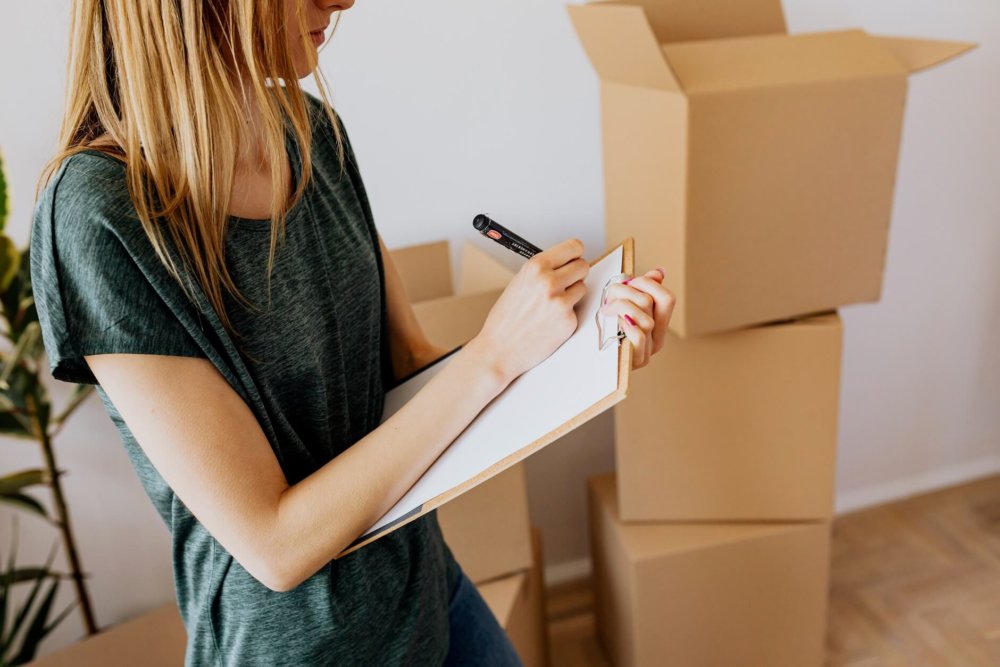
It’s Best to Get the Much-Needed Help From Professionals
As you prepare for your move, remember that the right packing techniques can make all the difference. From securing your boxes to properly labeling them, each step you take ensures your belongings arrive safely. For a seamless cross-country moving experience with expert packing solutions and dependable transportation, consider reaching out to Flat Price Auto Transport and Moving. Whether you’re relocating across the city or across the country, let our top-notch long-distance moving services help you make your move as stress-free as possible. Contact us today for more information and to schedule your move.


